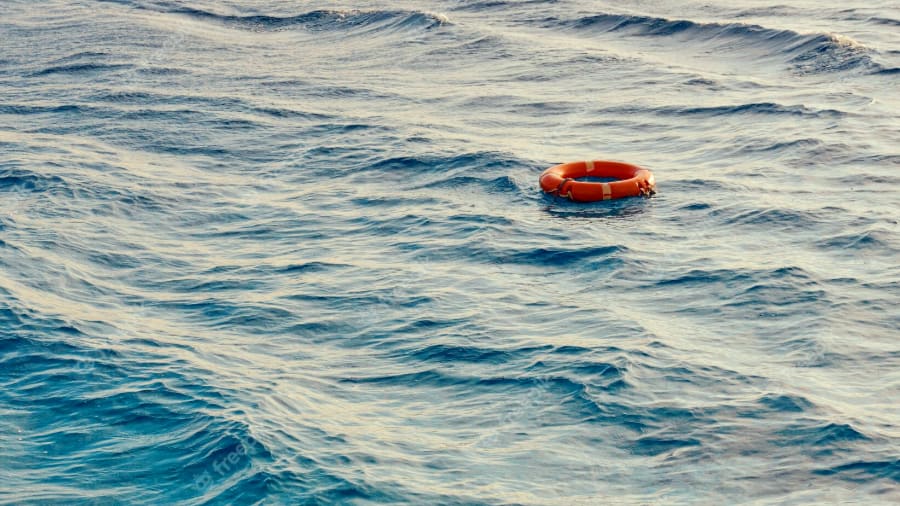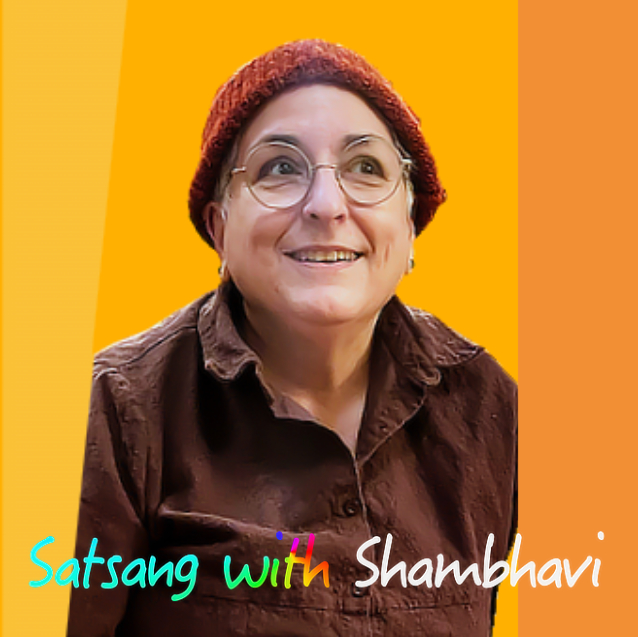What is the natural state and how can we get more comfortable with groundlessness, especially in these times? A podcast from Satsang with Shambhavi
STUDENT 1
I was wondering if you would just talk a little bit about taking refuge only in the natural state, the natural states. What is it like?
SHAMBHAVI
The natural state means the base state of reality, that living awareness. It is what you are, it is who you are, it is your natural state, and the natural state of everything.
It just naturally becomes familiar to you as you start to relax and have some of your karmic patterns start to unwind. So it just becomes naturally apparent. It announces itself to you. The less there is in the way between your perceptions and that, your own real nature.
So it's not an experience, although there are ways of talking about it experientially. But it is like the vast intelligence and wisdom that is the fundament of everything, what everything is made of and what everything is made by.
And like any encounter with sentience and creativity and wisdom, it tells you what it is, right?
See, this is the problem because we read all these books about how things are or what we're supposed to experience as practitioners, and then we go looking for that stuff, thinking that we are the discoverers.
But actually, what we need to do is become extremely receptive and open our senses, and then it announces itself to us.
Sometimes we treat that natural state as, like, someone at a party that we've cornered. [laughs] Here's what I want from you. Here's what I'm going to tell you. Here's how you're going to respond.
But spontaneity and naturalness means just that. It means that you have three hundred and sixty degrees of possibilities. Someone who is being spontaneous and natural and in a more awake state, that's the whole definition of freedom is freedom of self expression. Not being bound to show up in a particular way.
I'm trying to get people to tune in more and have a richer experience and learn to quiet down and not be jumping into their dramatic patterns so quickly, give themselves some space to feel what's actually happening.
There's a thing that students say about teachers all the time, "Well, you told this person to do something, and then you told this other person to the opposite. You're contradicting yourself."
And that happens because teachers are responding to the unique dimensions of people who come to teachings. Sometimes the answer for one person is to do something, and sometimes the answer for another person is to absolutely not do that thing.
That's the kind of freedom that I'm talking about, freedom to respond skillfully without attachment or preconditioning to whatever circumstance is happening.
In this tradition, teachers have a very wide range of expression, and sometimes they're sweet and loving, but sometimes their loving quality comes across kind of fierce, right? That's a hallmark of the direct realization traditions is that there's a much wider range of self expression of the teachers in it.
One of the teachers that I had who was probably the most awake person I've ever met in a body, in a regular human body. When you looked at him, his face was just like a river of constantly changing expressions. It was breathtaking to see how fluid his responses to things were.
One minute he was laughing, another minute he was just looking at someone with melting tenderness. The next moment he was glaring at somebody. Continual change in his expression.
The best way to experience that is to begin to do some practice and integrate that practice with your everyday life.
And slowly over time, when I say slowly, I mean years, possibly decades, possibly lifetimes, you will get glimpses of this. You will recognize this. Then it will eventually, eventually, eventually become your constant condition to be in that recognition.
Everything of importance that I learned about the natural state was something that no one taught me. I know that's weird. Maybe if I had had different teachers, I would have had some clue.
But people said things like, if they were on the Hindu side, consciousness and energy, vast and omnipotent and omniscient and blah, blah, blah. And if they were on the Buddhist side or the Dzogchen side, they would talk about nature of mind and rigpa and all kinds of other stuff.
But none of it, none of it captures what is, what actually presents itself to you when you are in a condition to be presented.
Everything of any importance that I learned was learned through sadhana, not through descriptions. And I would say the closest descriptions are in poetry, like Utpaladeva and Jñanadeva and all the great spiritual poets, they get a lot closer to whatever that is. Because it's full of feeling that's not as limited as our feeling.
But that, whatever that is, is giving rise to all poetry, all art, and all artistry of this life. It's full of feeling, full of compassion, full of a kind of intelligence that you can't even imagine.
So, who says that in books? In fact, most of the ways that teachers describe the natural state is kind of dry until you actually have that direct experience yourself.
But that's in the direct realization traditions. That's what the teachers are for, to help you have that opening, to help you recognize that and experience that. That's the whole reason for having a teacher. No other reason, really.
STUDENT 2
Just been reflecting on groundlessness a little bit today. The world is just in the state it's in. It might just be a comment, but if you have anything more to say about groundlessness.
SHAMBHAVI
It's a really great time to practice. If you keep practicing when you're feeling groundless and you don't rush to find some ground, whatever that might be, then even when you're really upset or really anxious or depressed or angry, all the things people feel when things feel groundless, especially on a global scale, this ?? Left you or your house burned down. That seems much less upsetting now! It's like, whatever.
But if you continue to practice day by day and continue to try to be in your heart, try to be in a more relaxed, receptive condition. Even when it's really hard and even when you don't know if you're succeeding or not and you don't even know if you're going forward or backward.
If you're progressing or regressing, because that happens too. It's like you don't even know. It's like being in a dark hallway, feeling your way along. You're not sure if you're still going in the right direction. Maybe you got turned around.
But if you just keep with the simplicity of practice, then at some point, the energy of you and the times, and things are going to just move, they're going to change because that's the nature of things. And the fruit of your practice is going to be right there.
STUDENT 2
I was just wondering what would be the types of things that someone might do to find ground?
SHAMBHAVI
In this condition right now, we'll have lots of strong takes on things, lots of narratives about what's happening, giving you the feeling that you're somehow analyzing it and summing it up and you've got it under control.
Or maybe binge watching a lot of television or eating in a certain way or glomming on to your feelings of pain. You can make painful feelings your ground. Because then you go around and tell everyone how crappy you feel and how it's so hard and you can't deal with this.
That becomes your new ground, your new way of connecting with people. Or maybe it was your old way and now it just has more fuel.
But anything like that or just kind of retreating into old patterns that feel more comfortable and telling yourself it's too upsetting to practice now. People do that. People come to me and say, I feel horrible so I stopped practicing.
But if you practice steadily for a lot of years, you start to learn the patterns, how things work. One of the ways things work is that if you practice through the hard times and you feel like nothing is happening, it's just torture. At the end of those hard times or when things open up more, it's like zoom. All the fruit is right there.
And the basic groundlessness of impermanence is something that we can enjoy and we do enjoy it in small bits. Surfing is a situation where you don't know what's going to happen next, and that's part of the pleasure of it.
You do know you're on a surfboard sitting in the ocean, but you don't know what kind of wave is going to come. You don't know if you're going to get a good ride. You don't know if you're going to get injured or not. You don't know if you're gonna freeze to death or whatever. There's just a lot of unknowns when you're surfing, right?
And that's part of the fun of it. That gives us a clue that if we were more relaxed, we were more realized, then we could enjoy the groundlessness of impermanence all the time.
That would be more of the awake experience to enjoy the groundlessness of impermanence. So now we have an opportunity to relax in that groundlessness and feel our discomfort, which can be really intense at times, I think, for a lot of people.
And explore that. And try to relax ourselves into a condition where we're not so freaked out by groundlessness because groundlessness is our condition all the time.
We just manage to fool ourselves with a bunch of fake grounds. But our grounds that we construct for ourselves, our plans is one really, really big ground that we construct for ourselves. Think of how upset we get when one little plan goes awry and now it's like, everything has to be basically not going as planned.
So it's a chance not just to recognize and get used to an unusual experience. But to recognize and get used to 'No, this is the experience.'
Our ruse, the wool we've pulled over our own eyes that this is not our condition is what's unusual. This is how things are.
Many, many people will just avoid discomfort at any cost, really any cost. They'll give away their whole lives to just have minor comforts. So don't skip over the parts that feel uncomfortable. Let yourself feel them. Know that you are uncomfortable with impermanence and groundlessness. That's the gateway.
Sign up to receive email updates
Enter your name and email address below and I'll send you periodic updates about the podcast.


